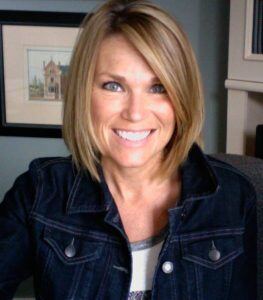by Jean Greer McCarthy
 The concept of powerlessness was perplexing as I contemplated life without alcohol. I was in the awful back and forth of failed attempts, beginning each morning with a vow that “this would be the day” and deciding firmly in late afternoon that due to circumstances x, y or z, it was essential to continue drinking.
The concept of powerlessness was perplexing as I contemplated life without alcohol. I was in the awful back and forth of failed attempts, beginning each morning with a vow that “this would be the day” and deciding firmly in late afternoon that due to circumstances x, y or z, it was essential to continue drinking.
The online evaluations I frequented assured me that my drinking pattern was problematic, yet the only solution I knew of seemed to disqualify me with it’s first “step” of declaring powerlessness. I felt there was still a glimmer of empowerment in the decision I made each day, even though it was a decision to drink.
At the time I used this confusion as an excuse to continue my pattern, reasoning that my power of choice negated all other indicators of addiction. If I wasn’t powerless, I must be okay. Still, I could not deny that as time went on things were getting slowly worse.
Eventually, I accepted that I was gradually descending towards an unwanted destination. Continuing to drink to a point of catastrophe seemed suddenly ridiculous to me, like insisting that one could not lose weight before hitting 350 lbs. or refusing to quit smoking before a pack-a-day habit developed. I needed to quit drinking and the sooner the better!
At this point, I looked beyond the best-known option and discovered there were other recovery pathways to consider. I began reading blogs, ordering books, downloading recovery podcasts and writing about my experiences. I connected with others online and found that I was not an anomaly. I was able to successfully change my life and live alcohol-free without steps or meetings, but my confusion over the concept of powerlessness remained.
It is funny how the mind holds onto moments of great clarity. Around 8 months into recovery, my family and I visited relatives in Palm Springs. I’d downloaded numerous podcasts for the trip, including several from SMART Recovery. Out for a morning walk alone, I first heard Dr. Edelstein’s explanation of the internal vs external locus of control. EUREKA! I was so excited I started skipping a little. Even now, several years later, I remember the exact street, the breeze, the palm trees, my grin.
Dr. Edelstein had explained my experience in a way I could never pinpoint before. The internal/external concept explained my aversion to the other pathway that had served many well, but clearly was not for me. It explained that my lack of powerlessness did not make me a defective alcoholic, and allowed me to feel more authentic and connected to my instincts.
When asked to recommend a recovery pathway, I encourage people to investigate all options before deciding for themselves, explaining that the concept of internal or external locus of control is one of the key areas to consider. Understanding the difference between the internal and external empowerment is beneficial to those who are in early recovery.
Now I have transitioned into managing my life in long-term recovery, I value the internal locus of control even more so as I tend and cultivate motivation and balance from within.
Jean Greer McCarthy is a blogger, podcast host and recovery advocate from Alberta, Canada. She is the author of unpickledblog.com, a regular contributor to addiction.com, and co-host of The Bubble Hour podcast.
